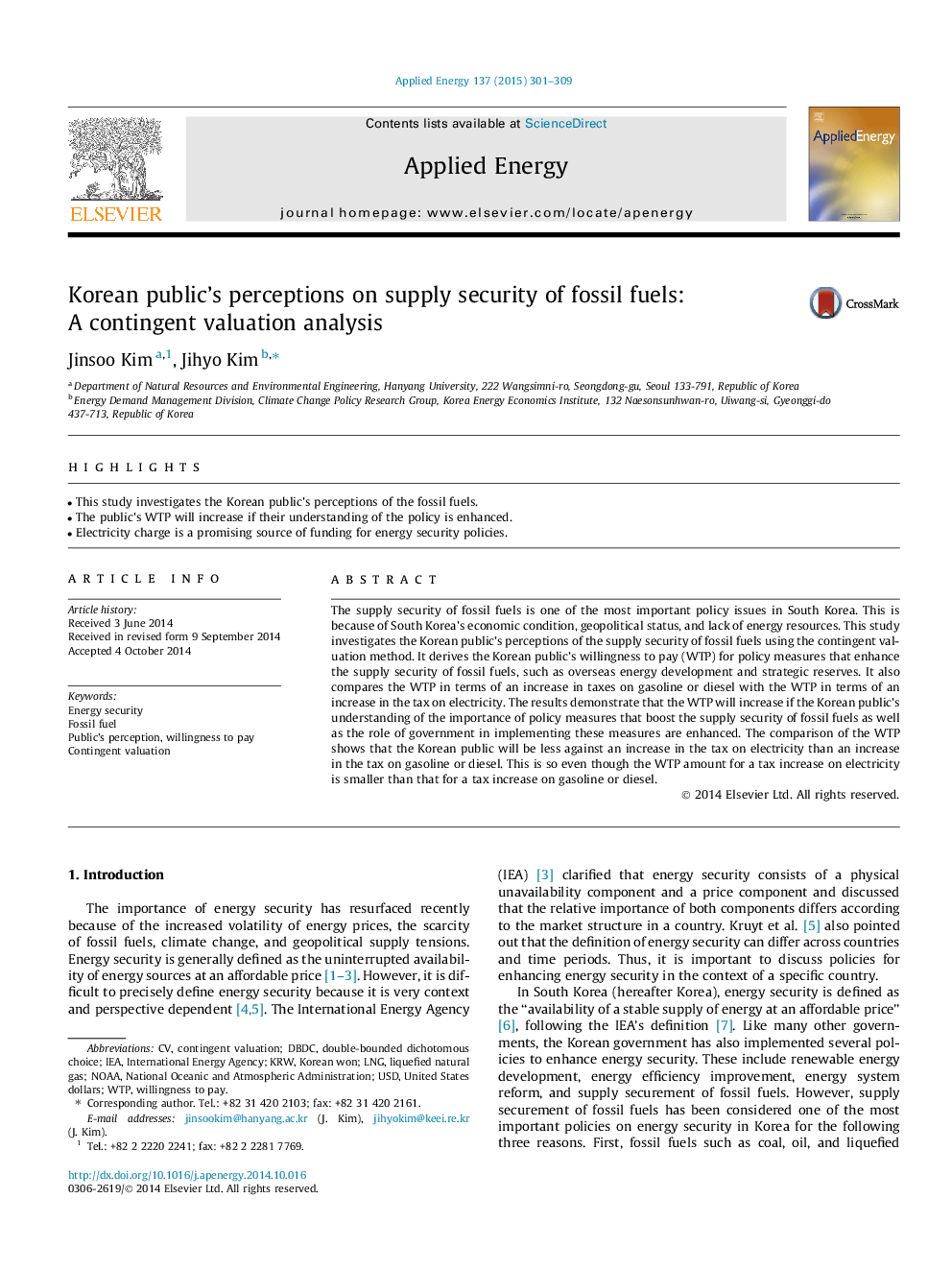| Article ID | Journal | Published Year | Pages | File Type |
|---|---|---|---|---|
| 6688538 | Applied Energy | 2015 | 9 Pages |
Abstract
The supply security of fossil fuels is one of the most important policy issues in South Korea. This is because of South Korea's economic condition, geopolitical status, and lack of energy resources. This study investigates the Korean public's perceptions of the supply security of fossil fuels using the contingent valuation method. It derives the Korean public's willingness to pay (WTP) for policy measures that enhance the supply security of fossil fuels, such as overseas energy development and strategic reserves. It also compares the WTP in terms of an increase in taxes on gasoline or diesel with the WTP in terms of an increase in the tax on electricity. The results demonstrate that the WTP will increase if the Korean public's understanding of the importance of policy measures that boost the supply security of fossil fuels as well as the role of government in implementing these measures are enhanced. The comparison of the WTP shows that the Korean public will be less against an increase in the tax on electricity than an increase in the tax on gasoline or diesel. This is so even though the WTP amount for a tax increase on electricity is smaller than that for a tax increase on gasoline or diesel.
Keywords
Related Topics
Physical Sciences and Engineering
Energy
Energy Engineering and Power Technology
Authors
Jinsoo Kim, Jihyo Kim,
